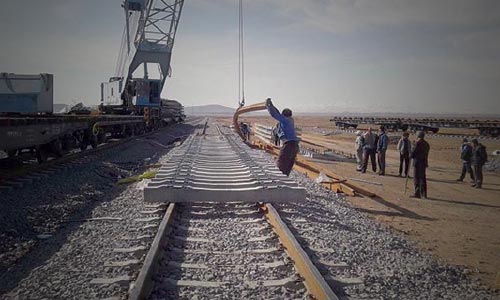The peace agreement between the Taliban and the United States has generated hope and disappointment among Afghan people. Both the concern and hope are reasonable. If Afghan politicians do not revise their stance and prefer their factional and self-interests to those of the public, the storm of reactionaries and ISI will jeopardize republicanism and all the hard-won gains achieved within the past decades with high human sacrifices. And streams of blood are likely to be generated beyond that of past civil unrest. Afghans pursue the current process with a myriad of questions. The questions arise are: Will the US-Taliban peace deal be the first step to result in sustainable peace? Are the Taliban intent on making peace and reconciliation with the public or reviving the Islamic Emirate? Is the United States, as a strategic partner of the Afghan government, concerned about the nature of the future setup in Afghanistan? Have Afghan citizens and supporters of republicanism not fallen victim to the Trump’s presidential campaign as well as Trump-Taliban-ISI deal? Are the government, citizens, political actors, and civil society able to defend republicanism versus the Emirate system? The subsequent paragraphs will initially point out the public concern about the ongoing peace process, then, the approach of the involved parties in the phenomenon of peace and war in Afghanistan, ultimately, the logical manner of safeguarding republicanism and democratic values and transition from the current cul-de-sac.
(1) Public Concerns and the Reasons Behind:
The draft agreement was finalized four months ago, however, the public were not aware of its content. I reiterated the need for cautious approach and the reasons as well as resistance towards the mission of US Special Envoy Zalmay Khalilzad in my past commentaries. The Afghan government resisted to Khalilzad’s demands, which were also the Taliban’s demands. However, the president, as a nominee for presidential elections, was accused of being against the peace by his rival teams, which sought to de-uglify the Taliban’s acts, within four months. It is clear that the Afghan state and nation are still concerned about the content of the agreement contrary to the government’s constant reiteration to Khalilzad and its opposition to particular cases. Regardless of the concerns, the deal is both a serious threat and a great opportunity. Republicanism and the constitutional values are still not compromised, and the threat can be mitigated if logical interactions take place so as to lead the peace to sustainability. However, there is a highly rocky road ahead and managing the current process to mitigate the risks and consolidate opportunities are not impossible but hard. It needs logical thinking and consensus by republican side. The public concerns, based on the content of the peace deal, are as following:
1. Will peace be at the cost of abolishment of republicanism and rule of the Islamic Emirate? The Taliban mentioned “Islamic Emirate” in the content of the accord.
2. Will the current political order in Afghanistan collapse to be ensued by temporary government and then Emirate or its likes? The deal mentions “new post-settlement Afghan Islamic government”, which will be in contact with the United States in the future. Have the US recognized the Taliban as a government or Afghanistan’s future rulers since it asks the UN Security Council to officially recognize the peace deal and the pledges taken from the Taliban as not to “provide visas, passports, travel permits, or other legal documents to those who pose a threat to the security of the United States and its allies to enter Afghanistan” can be taken only from a government.
4. The second reason behind the public concern is the US’ pledge to facilitate the release of 5,000 Taliban prisoners before the start of intra-Afghan dialogue. This issue is feared to, besides facilitating the withdrawal of US troops, strengthen the Taliban and undermine the Afghan government.
5. Afghans are also concerned about the return of the Taliban with their past nature as well as: The satisfaction expressed by the Taliban and Pakistan, and the Taliban’s interpretation of the deal as triumph of Islam over infidelity and the defeat of the US, their celebration with white flag in the Qatari capital of Doha, Mullah Haibatullah’s declaration of public forgiveness, Abbas Stanikzai’s emphasis on the release of the Taliban’s 5,000 prisoners before the intra-Afghan dialogue and so on and so forth.
Home » Opinion » Will the Republic be Saved or Tension Repeats in Kabul?
Will the Republic be Saved or Tension Repeats in Kabul?
| Mohammad Shafaq Khawati

